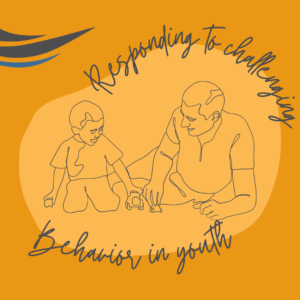To foster resilience in youth, parents, caregivers, and professionals may need to start with some self-reflection.
For a moment, close your eyes and imagine your 14-year-old self. You overhear two different conversations.
Conversation #1. You are described as a natural leader who knows what they want, is committed to their goals, can advocate for needs… an expressive communicator who is energetic, spontaneous, and full of life.
Conversation #2. You are described as a bossy teen who is demanding and attention-seeking, stubborn, full of drama–excessively talking, hyperactive, reckless, and impulsive.
Both conversations are similar except in the 2nd example, behaviors that are viewed as more “negative” are reframed in a positive way that highlights strengths. “The behavior or situation remains the same; it is your attitudes and reactions that change.”
The power of re-framing can help view youth in their best light so they can also see the best in themselves. Helping youth recognize their positive qualities and finding opportunities to develop these can be very exciting and can help develop confidence in children. We want to hold children to high expectations, examine our own beliefs, and actively work to create environments where all children can thrive. Relationship and the power of words plays an important role.
One example used by schools is to identify students as “scholars” and build on empowering, positive affirmations. “I can do anything if I try. I can be the best that I can be.”
We want to help children grow and learn in ways that don’t shame; after all, mistakes are natural ways in which children learn. Even mistakes can be reframed as lessons learned by taking a risk. Adults can help kids and teens consider the implications of their choices and teach skills to empower making positive choices. It can be difficult when children and teens are struggling with behavioral challenges, substance use, or unaddressed mental health. It takes time to build trusting relationships, especially when the foundation of trust in a child’s life has been unstable.
Finding appropriate outlets to get support and cope through life challenges is so important. As adults, we are powerful role models.
In Minnesota, there are an estimated 250,000 young people who need and could benefit from an adult mentor.
If you have ever considered mentoring, check out some of the options here: https://www.mentormn.org/
Written By : Charlotte Johnson, MA, LPCC
We’re Here to help
Our wellness experts will be happy to take care of you. You can CLICK HERE to schedule an appointment now or call (612)223-8898.
Meet Clinicians
We’re united by our commitment to providing effective, relevant, and innovative mental health support at all stages of your journey. Click Here to find out more about who we are, where we come from, and how we live out CARE’s mission every day.
The professionals at CARE are actively collecting and creating resources to help with what you need. We’re Here for You.



